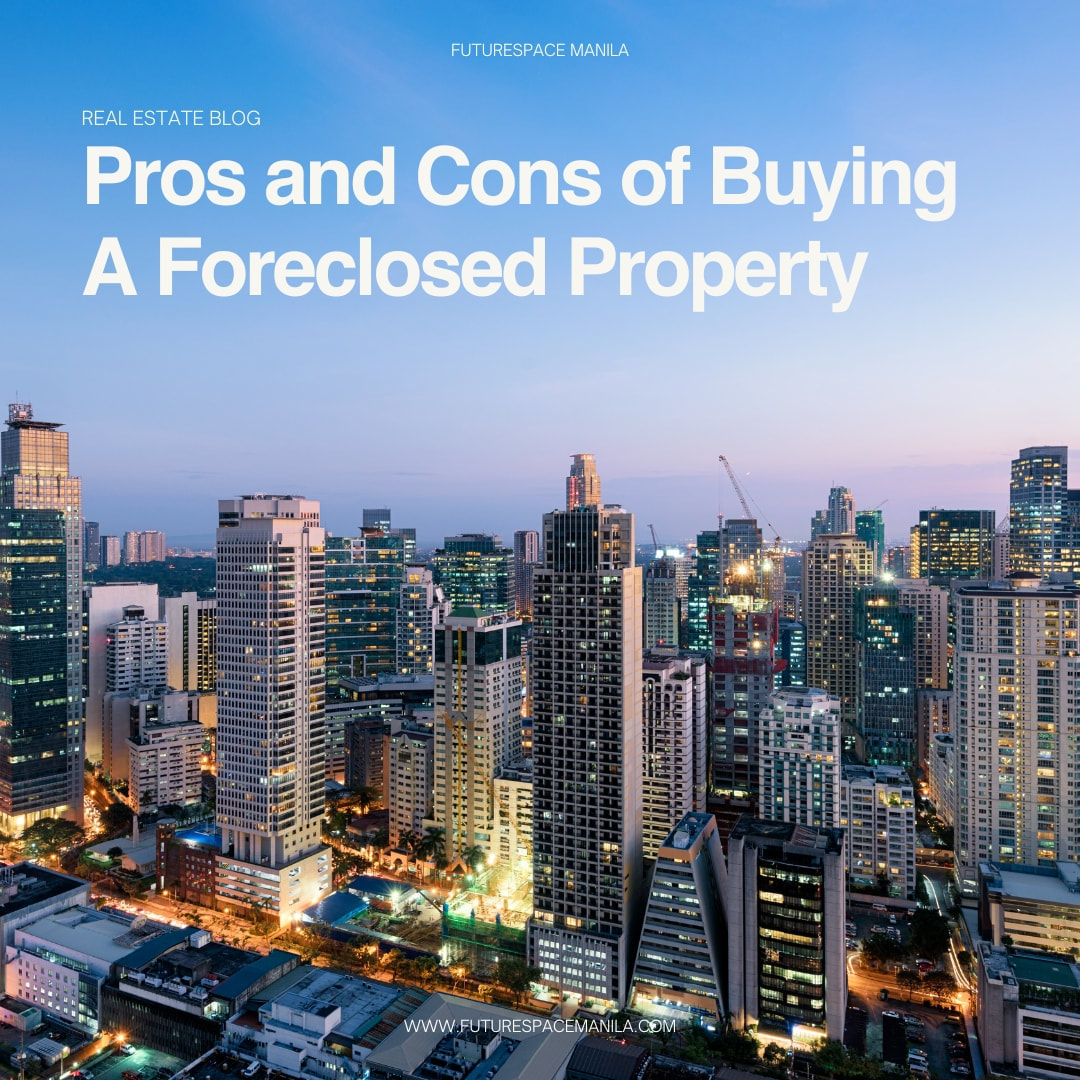|
Investing in a property, whether you're a first-timer or a seasoned investor, can be a rollercoaster ride filled with wins and setbacks. Buying a property that's foreclosed is not an exception to this journey. But if you're keen on a home or property that suits your budget and style—and it happens to be a foreclosed home— then it might be worth considering.
Prior to proceeding, however, learning about the foreclosure process and the pros and cons involved in buying a foreclosed home can help you decide if it's the right property investment for you. What are Foreclosed Properties? A property or home enters the foreclosure process when its homeowner falls behind their home or mortgage loan payments. Properties can also become foreclosed properties if the homeowner fails to pay real property tax from the government. When this happens, the bank or mortgage lender can takeover the home. What is the Foreclosure Process? Buying foreclosed homes may seem like an affordable and convenient way to own a property. But it's best to know the stages of the foreclosure process first prior to purchasing foreclosed properties. The three stages in the process are: the pre-foreclosure, the foreclosure auction, and the post-foreclosure. Note that any interested buyer may purchase the foreclosed property any time during those stages. However who the buyer purchases the property from may change throughout the process. Buying a home in the pre-foreclosure stage will entail buying from the homeowner. This will allow them to avoid foreclosure. A buyer will purchase the home from the bank or mortgage lender if they buy within the foreclosure auction and the post-foreclosure stage. Pre-foreclosure This stage starts when the homeowner significantly fails to follow through their mortgage payments or property taxes and the foreclosure proceedings have been initiated by the bank or lender. The homeowner will be selling the property less than the real estate market value or less than the amount owed to complete the mortgage loan. This is referred to as a short sale. Foreclosure Auction At this stage the title of the foreclosed home has likely been transferred to the lender or the bank. A property in active foreclosure will be put up for auction and sold to the highest bidder. Note that the bank or lender can sell the foreclosed homes at this stage below market value so they can gain back their loss without putting the foreclosed property on the market. Post-foreclosure Buying foreclosed properties during this stage means that the property failed to sell during the auction. If so, the property is considered REO or a real estate owned property, meaning the bank or lender owns the property and will be accountable for its sale. REO properties are put on MLS or the multiple listing service. This is what a real estate agent uses to search and compare available properties. Pros of Buying Foreclosed Properties Lower price The most obvious advantage of purchasing foreclosed properties is their relatively low purchase price. Home buyers are in luck because lenders would typically be itching to get rid of a foreclosed home to cover their losses. Gain bargaining power Again, lenders and banks are often in a hurry to offload foreclosed homes as quickly as possible. They often pay the real estate agent’s commission and will negotiate other concessions on things like price, closing costs, and down payment. This puts a buyer at an advantage of bargaining for that they want. Flexible financing options Like buying non-foreclosed properties, a buyer can get regular mortgage financing in buying a foreclosed property. There are even foreclosed properties that have flexible financing options. Better ROI prospects Investing on a foreclosed property can turn out to be a good endeavor. The foreclosed home make take a few renovations or repairs, yes. But once done, you can rent out the property with the same amount landlords charge in the area. Cons of Buying Foreclosed Properties The foreclosed property will be sold as is Banks or lenders will not make repairs even if a foreclosed home needs it. This means a buyer will need to take home inspections seriously and decide if the property is worth the deal. Being in the as-is status means there won't be a home warranty. A buyer has no guarantee of protection if he discovers a health hazard or deficiencies in the property. Buying a foreclosed property while it is on auction means a buyer won't be able to inspect the property itself. Property repair and renovation costs The foreclosed home might have a lower price but the potential costs of repair work might undo just that. Depending on the interior and exterior condition of the property, a buyer should be ready to make a hefty investment. Longer process due to additional steps Original owners won't move out the same day you purchase a foreclosed property. The legal legwork might also take time considering the transfer of the title from the owner to the lender. A buyer should be ready to jump extra hoops before reaching final closing. A buyer has to confirm that the home title is free and clear once the closing is complete. Takeaways Foreclosed properties may be easy to find on the Internet. One can also be easily drawn to making a quick investment and save money due to the lower purchase price of foreclosed properties. But before anyone gets into the buying process, it would be wise to weigh the additional costs involved such as repairs and to do research on the value of other properties on the same location where the foreclosed property stands.
0 Comments
Leave a Reply. |
Categories
All
Archives
January 2024
|


 RSS Feed
RSS Feed